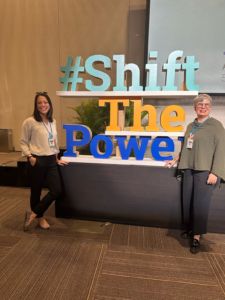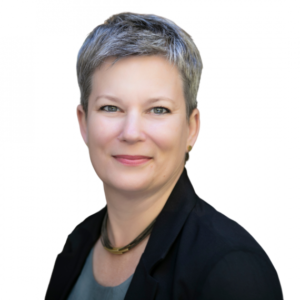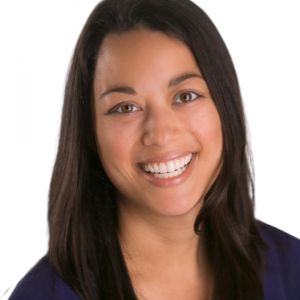In the heart of Bogotá, Colombia, the Shift the Power Summit posed a crucial question: “Do you believe that another way is possible?” Humentum’s Christine Sow and Kim Kucinskas, part of the gathering, share their experience of a conference that defied norms. Reflecting on their takeaways, they stress the need to acknowledge uncertainties and act despite imperfect conditions. Spanning three days, the Summit underscored the importance of collective efforts and diverse contributions in shaping a more locally led and locally owned future. Let’s dive in!
What drew you to the Shift the Power Summit, and what were your first thoughts when you arrived?
Christine Sow: The prospect of engaging with passionate individuals who are committed to “shifting the power” convinced me to attend. On arrival, my initial inclination was to adopt a fast-paced, business-like approach, akin to the atmosphere in Washington DC or Geneva. And then I looked around me and saw that everyone was sitting back, hanging out and having conversations, which made me deliberately slow down.
The Summit challenged the traditional conference format. It wasn’t the typical, I’m going to get up and speak to people about something in a rational, formulaic manner, playing the role of an expert imparting knowledge scenario. Instead, it was much more about feeling the vulnerability that we all have in this journey of transformation. This was not a conference that came up with recommendations; we weren’t sitting around coming up with our five-point agenda through collective deliberation.
For example, I attended a session focused on systems change, anticipating discussions related to reimagining organizational systems. However, the conversation focused on the themes of love and dignity. My initial reaction was “this is not systems.” That said, this session turned out to be incredibly stimulating, pushing me to consider perspectives outside my usual frame of reference. I seldom find myself in spaces that actively challenge me to step outside my comfort zone and embrace radically different modes of thinking, but this was one of those.
Check out Christine’s day one takeaways here.
Kim Kucinskas: I’ve been actively following the #ShiftThePower hashtag for some time, so the prospect of bringing everyone together in person intrigued me. To be honest, I didn’t have any big expectations going in. I approached it with an open mind, particularly given the way they described it, especially the “unconference” aspect. I wasn’t necessarily seeking something specific; my main goal was to listen, learn from others, and figure out the intersections between Humentum’s work and the broader conversation. There was also this notion of I don’t know what I don’t know. Trusting the process meant suspending belief, an integral part of the experience.
While the organizers of this event naturally champion community-led initiatives, the emphasis on local voices, stories, and knowledge stood out. Acknowledging and ensuring that individuals recognize their insights and feel able to voice them is crucial. And one thing we all need to spend more time on is reflecting on bridging the gap between operational models, the intricacies of the work, and the broader conversation of continuing to focus on listening to local voices. That’s clearer than ever.
Check out Kim’s day one takeaways here.

Can you share your experience of connecting with peers at the Summit? Were there any particularly memorable moments?
Kim Kucinskas: Aside from the incredible individuals doing inspiring work, many representatives from facilitating and catalyzing organizations like Humentum were also present. So being able to link up with counterparts was great even though I missed some sessions while talking to people in the hallway—there was real value in doing so! From day one, a clear theme emerged: we’re all engaged in similar work. The many discussions focused on coordinating, aligning, avoiding duplication, and amplifying each other’s voices.
On the one hand, we must acknowledge some hard truths about our work and business models. But on the other hand, it’s also a case of—how do we say both publicly, to ourselves, and to our funders that we won’t replicate the old model of retreating to our corners, maintaining silos, and keeping ourselves isolated? It’s about embracing a spirit of collaboration, recognizing it’s not a zero-sum game. The energy around this idea was palpable, even if we haven’t fully worked out the “how” yet.
Christine Sow: More than once they said there would be dancing at the revolution, and there was a lot of dancing! In keeping with the spirit of the three days, and to link this back to things that we already say at Humentum, there was very much a spirit of the power of the collective through these intermediary and connector organizations. I have to say that there was a notable lack of competition in the way that we were conversing, which again, is not necessarily the way it typically goes.
What was one takeaway for you personally?
Kim Kucinskas: It really did crystallize that there is a need for both confronting the system externally and fostering change from within. I felt challenged by a lot of the people speaking, and feeling uncomfortable is key for personal growth and broader, inclusive thinking. And there needs to be people who are trying to fix the broken system from within, or else we’re not going to get where we need to be. That was a big takeaway—the importance of building relationships and connections while respecting the intent and impact of the other.

On that note, engaging with people on the decolonizing side in real conversations highlighted the validity of different approaches. Sometimes in the social media world, where cancel culture prevails, people can be quick to call each other out because it’s easy to do that, whereas building personal relationships makes it more challenging to dismiss one another. I hope and believe that there is enough space, and frankly, a need for both approaches, because it’s a movement.
Check out Kim’s day three takeaways.
Christine Sow: It stood out as a space distinct from the usual dominance of INGOs, funding agencies, and bilaterals. Instead, it was driven by community activists—it had a different feel to it. This week has infused me with so much energy, while being a reminder of why we are doing this work. The community activists who attended are on the frontlines in terms of confronting the world’s most heinous situations; their unwavering commitment has reignited my optimism and hope. I’ve long held that hope and optimism are the most radical things you can do, and this experience only intensified that belief. Last week, we were immersed in a setting with the very individuals we are meant to serve.
And touching upon Kim’s point, I recently had a discussion with someone who suggested that instead of the three-legged stool approach used by Humentum, what’s needed is a strong focus on community involvement and a willingness to disrupt the status quo. I agree that all of this is necessary, however some of us will need to address issues in existing systems as others move towards more radical transformation. During the event, individuals with similar perspectives were present, yet rather than discouraging each other’s efforts, it was more of a “yes and” rather than a “yes, but” dialogue. This emphasized the value of the open discourse present in physical spaces, something often lacking in digital interactions.
Watch Christine’s day three takeaways from the Summit.
What is one message you would like to share and carry forward?
Christine Sow: A recurring sentiment that resonated with me, and which we at Humentum can relate to, is the shared experience of many individuals expressing, “I couldn’t secure funding for initiatives I knew were crucial, or I still face challenges obtaining support for necessary projects, but I’m going to do it anyway. It may involve a scaled-down approach, a more gradual pace, or a different strategy than initially envisioned, but waiting for the perfect conditions is not an option; I recognize the urgency to act, trusting that the pieces will eventually fall into place.” To me, that reiterated the need to recognize that progress often requires the willingness to navigate uncertainties and continuing to move forward as best you can.
Kim Kucinskas: There were 700 plus people at the Summit but there are so many more people doing this than those who were in attendance. What I took away from this experience—and what I would hope resonates with everyone—is the realization that there is a need and a space for everyone to contribute in their own way. So, no matter where you sit, no matter what kind of positional/situational power you hold, everyone has a role to play. Only collectively will we propel positive change forward—I truly believe that.
At Humentum, we believe equitable and locally led development will only happen when organizations are able to exercise autonomy over their institutional architecture, people, funding, and risk. What does this journey to greater equity look like? Find out more here.


